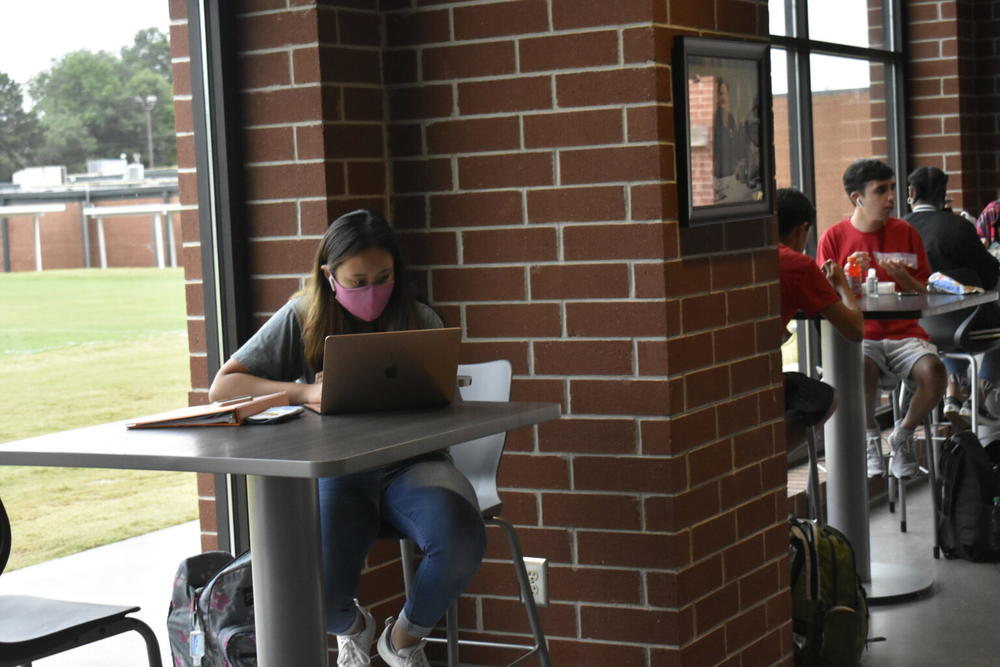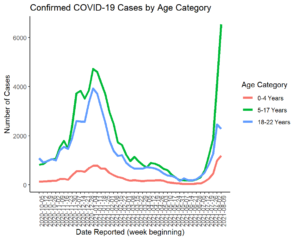
Caption
A masked Forsyth Central High School studies on her laptop during her lunch break in this 2020 file photo. School districts are taking a variety of approaches to high numbers of COVID-19 cases among children.
Credit: Ross Williams/Georgia Recorder


